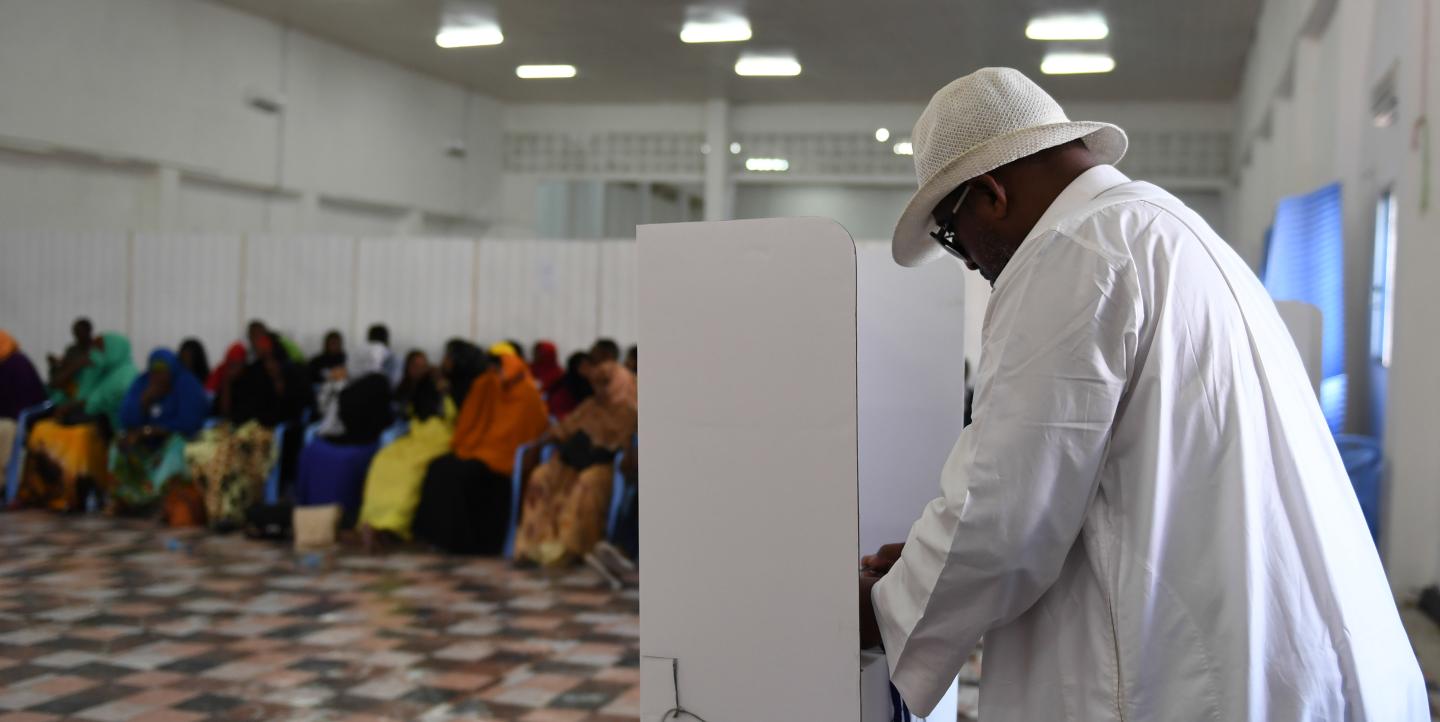To ensure journalists' safety and access to information ahead of this year's elections in July, the Zimbabwe Media Commission (ZMC), in collaboration with the United Nations Educational, Scientific, and Cultural Organization (UNESCO), authored a manual for the first time in 43 years to provide journalists with guidelines for covering the elections.
The manual informs journalists about the country's electoral systems, including how the Zimbabwe Electoral Commission (ZEC) functions, voter registration and the pre-election environment, according to Godwin Phiri, ZMC's executive secretary.
“The purpose is to ensure that we can create a conducive peaceful environment that guarantees the safety of journalists and access to information,” said Phiri. “We want journalists to speak and write from the position of knowledge and not speculation.”
The manual covers topics important for journalists to know before the elections, such as how election primaries work, the process of candidate nomination, voting procedures on polling day, vote counting and compilation of results, and post-election events and complaints, as well as their role during election processes.
“The overarching objective is that elections need to be credible, and for us the interest is that journalists must provide information that enables citizens to be properly informed,” said Phiri.
Media polarization
The manual comes at a particularly polarizing time in Zimbabwe. In 2021, the Special Rapporteur of the UN on the Rights to Freedom of Peaceful Assembly and of Association stated that Zimbabwe was suffering from both media polarization and bad governance.
In addition to educating journalists about voting systems, the manual addresses media polarization through increasing public trust in the media. Placing a strong emphasis on ethical behavior and uniform standards across outlets is one way it aims to do so, according to Phiri.
“We are aware of the polarization of the media and want our journalists to act professionally so that the media will continue to be credible after the elections. We want our journalists to be able to distinguish themselves from social media [and to] conduct themselves in a professional manner, not to be the ones seen driving divisions in the country,” he said.
“We are hoping that by having commonality in standards, ethics [and] professionalism, journalists can see themselves as colleagues,” he added.
While the guide is a welcome development, Njabulo Ncube, Zimbabwe National Editors Forum coordinator, noticed that it came late, as elections were less than a year away when it was published last November.
“Elections are a process not an event. The manual should have been in place as soon as after the 2018 polls, to address well known transgressions of Zimbabwe media – both public and private, including online,” Ncube said.
“Several reports by local, regional and international observer missions have consistently red-flagged the local media [as driving polarization], but nothing has been done about these issues which ZMC and the election management body are aware of,” he said, in reference to the partisan coverage of past elections.
Tabani Moyo, regional secretariat director for the Media Institute of Southern Africa (MISA), applauded the ZMC for developing a manual to assist journalists in creating a conducive environment during elections, but stated that his organization had already previously worked on election reporting guidelines, and that the media was not the only one to blame for polarization.
“Throughout these years, MISA has kept an eye on how journalists have reported when under attack. The police, political parties or other external actors, rather than the journalists themselves, are typically to blame in these [polarizing] situations,” he said. “The ZMC should widen its focus [beyond the media] in terms of the electoral system, but it still has a role as it is a member of the election monitoring committee,” he said.
Ballot access for journalists
Meanwhile, journalists who report on the elections in Zimbabwe struggle to exercise their right to vote even as they cover the elections, as they are not exempt from early postal voting rules.
Last April, two senior journalists from Bulawayo, Mandla Tshuma and Lulu Brenda Harris, petitioned parliament to amend the Electoral Act, which limited early postal voting to members of the security forces, diplomats and some government officials, to include journalists.
“Journalists provide a critical service that the government recognized and formalized in April 2022 during the COVID-19 lockdown period,” said Harris. "Such as when journalists were put on the vaccine priority list by being deemed “essential workers.”
Tshuma and Harris highlighted that many journalists would be deployed to cover election activities far from their home polling stations, and risked losing the right to exercise their vote by carrying out their reporting duties should the amendment not pass before the elections.
Safety while reporting
The crafting of the manual, while a useful tool for journalists, comes at a time when journalists are frequently mistreated by Zimbabwean authorities, notably through physical abuse, intimidation by law enforcement, arrests and detention.
In order to ensure journalists’ safety in tense situations, such as those involving anti-riot police officers enforcing public order during elections, the Zimbabwe Republic Police (ZRP) national spokesperson, Assistant Commissioner Paul Nyathi, urged media personnel to introduce themselves to police ground commanders, show their accreditation cards to police and wear their media vests that identifies them at all times.
“Police and the media don't function in a vacuum, especially now that we're approaching the 2023 harmonized elections,” said Nyathi during a recent police and media engagement meeting on law and policy reform. “It is important for the media to engage with police ground commanders so that some of the challenges which are faced by journalists are addressed at the local level.”


